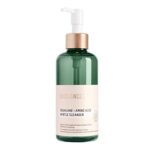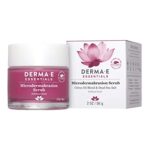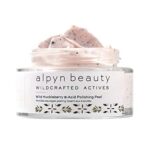Acne breakouts can be frustrating and embarrassing for a lot of people. while the causes of acne are complex and multi-factorial, one major contributor is the buildup of oil, dead skin cells, and bacteria in the pores of the skin. Lets explore how this buildup occurs and why it leads to acne breakouts.
Our skin has millions of tiny pores, which are openings in the skin through which oil, sweat, and dead skin cells can escape. These pores are connected to sebaceous glands, which produce sebum, an oily substance that helps to keep the skin hydrated and healthy. When the sebaceous glands produce too much sebum, or when dead skin cells accumulate in the pores, the pores can become clogged. Clogged pores create the perfect environment for acne-causing bacteria to thrive. The bacteria, which are naturally present on the skin, feed on the sebum and dead skin cells that have accumulated in the pores. As the bacteria multiply, they can trigger an inflammatory response in the skin, leading to redness, swelling, and the formation of pimples.

Types of Acne
One common type of acne that occurs due to clogged pores is called comedonal acne. This type of acne is characterized by the presence of blackheads and whiteheads, which form when the pores become blocked with oil and dead skin cells. Blackheads are open comedones, which means that the pore is open to the air and the sebum inside the pore has oxidized, creating a dark color. Whiteheads, on the other hand, are closed comedones, which means that the pore is closed and the sebum inside the pore has not oxidized, creating a white or flesh-colored bump on the skin.
In addition to comedonal acne, clogged pores can also lead to inflammatory acne, which is characterized by the presence of red, swollen pimples that may be painful to the touch. Inflammatory acne occurs when the bacteria in the clogged pores trigger an immune response in the skin, leading to inflammation and the formation of pus-filled leasions.
Prevention
So, how can you prevent buildup in pores and reduce your risk of acne breakouts? The key is to keep your skin clean and exfoliated. Cleansing your skin twice a day with a gentle cleanser can help to remove excess oil, dirt, and dead skin cells that can clog pores. Exfoliating once or twice a week can also help to slough off dead skin cells and prevent them from accumulating in the pores.
It’s also important to avoid using harsh or abrasive products on your skin, as these can irritate the skin and make acne worse. look for products that are labeled “non-comedogenic,” which means that they are less likely to clog pores.
In conclusion, the buildup of oil, dead skin cells, and bacteria in the pores of the skin is a major contributor to acne breakouts. by keeping your skin clean and exfoliated, you can help to prevent this buildup and reduce your risk of acne. If you are struggling with acne, its’ always a good idea to consult with a professional, who can help you develop a personalized treatment plan that is tailored to your skin type and individual needs.



